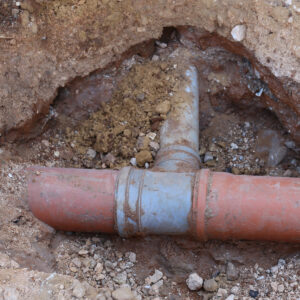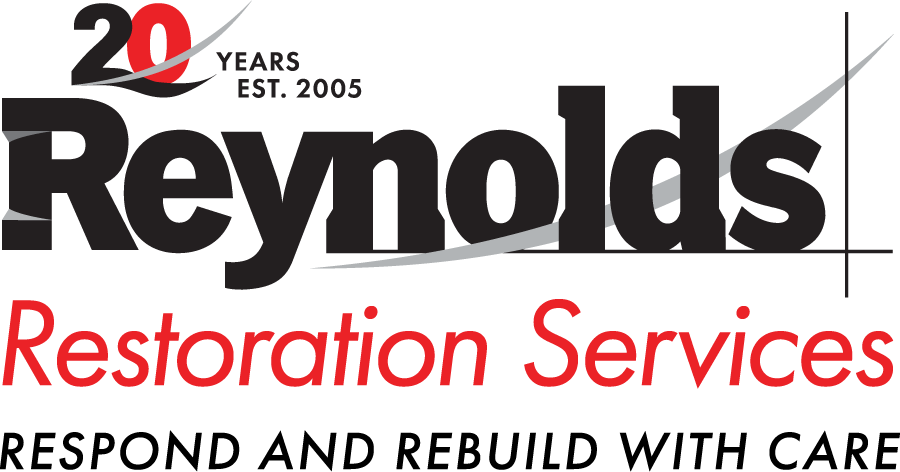
Learn what causes sewer backup in a basement, how to prevent your sewer system and drainpipes from clogging, and what you should do if you have a sewage backup in your basement.
What Causes Sewer Backup
Knowing what causes a sewer backup can help you prevent a backup from occurring in the first place. What are the common causes of a sewage backup? Here are the top reasons your sewer lines may become clogged:
- Clogged drain line or pipe: Sewage water can backup into your home when the sewage drain line or pipes become clogged. Clogs can build up over time from hair, grease, or any materials that should not be put into your sewage system.
- Tree roots: Tree roots are a big culprit when it comes to sewage backup. Roots will seek out moisture and intertwine with the pipes causing extensive damage or blockages.
- Damaged sewer pipes: Older homes may have sewer pipes and lines made from cast iron or clay. These materials don’t last very long and may become damaged or cracked causing backups and flooded basements.
- Misrouted gutters, downspouts, and sump pumps: Your gutter system and your basement sump pump should never be connected to your sewage system. In fact, it could be illegal depending on where you live. Rainwater should be diverted into storm sewers, not sanitary sewers.
- Heavy rainfall: Severe weather systems that bring heavy rain can cause a sewage backup. When an excessive amount of rain overburdens city sewer systems, the water can make its way into your sewer line.
 How to Prevent Sewage Backup in Your Basement
How to Prevent Sewage Backup in Your Basement
What can a homeowner do to prevent a nasty sewage backup? There are several ways you can help prevent your basement from becoming filled with blackwater:
- Don’t pour grease in your drains: Some cooks will dispose of grease down the kitchen sink. Even though the grease may be liquefied with hot water, it will eventually solidify once it cools. The grease can accumulate in your drains and main sewer lines, and then lead to a clog. Take caution as well with items like eggshells, coffee grounds, hairs, and other items.
- Dispose of paper products properly: The only paper product that should be flushed is toilet paper. Other items like paper towels, cotton swabs, feminine hygiene products, and facial tissue should never be flushed. Other no-nos? Medicines, contact lenses, garbage, and cotton balls. Basically, do not flush anything except TP.
- Replace sewer lines with plastic pipes: Plastic piping is a better choice for sewer lines. Plastic pipes are impervious and tree roots cannot penetrate them. They also last longer than older clay or cast iron pipes.
- Cut tree roots: Unable to replace your sewer line with plastic pipes? Cut tree roots regularly to prevent them from growing near or around your sewer line.
- Install a backwater prevention valve: A backwater prevention valve is a fixture that prevents sewer backflow. A qualified plumber can install this for you in the basement of your home.
Sometimes even with proper preventative measures, a homeowner may experience a messy sewage system backup. This kind of emergency is best left to a professional emergency restoration services company for clean-up and mitigation. A professional restoration company has the proper tools to clean up the mess safely and then disinfect the affected area.
What to Do After a Sewage System Backup
A sewer backup can lead to structural damages, disease, and personal property damages. Prompt clean-up is essential to minimize overall damage and health risk. If you experience a backup, immediately contact a restoration company for assistance.
Before they arrive, you can take steps to keep yourself safe as well as minimize further damage:
- Evacuate family members and pets from the area until it is restored to a safe condition.
- Contact your utility companies and have them stop service to your home. If the spill is small and contained, you can turn off the electricity yourself. Wear protective clothing such as eye protection, a face mask, and rubber boots if you have to walk through sewage water.
- Open windows to ventilate the affected area.
- Notify your insurance company of the incident. Take photos of the backup as well as any items that were damaged.
Remember – using a professional emergency restoration services company is highly recommended after a sewage backup, especially a major one. They have the tools and training to clean up the affected area safely so your family can return to your home quickly.
Emergency Restoration Services for Sewage Backup
At Reynolds Restoration Services, we take on the tough task of cleaning up the mess after a sewage backup. Our team can be on-site quickly to assess the damage and get your home cleaned up and restored to its pre-loss condition.
We have offices in Harrisburg, Pa., Philadelphia, Pa., and the Baltimore, Md./Washington DC region and service locations throughout the mid-Atlantic region. We are on call 24/7 to help with all types of emergencies including storm damage, fire damage, flooding, and sewer backups. Contact us at 1-888-277.8280 for immediate assistance.

President of Reynolds Restoration Services. Over 20 years of experience in the emergency restoration industry.


 How to Prevent Sewage Backup in Your Basement
How to Prevent Sewage Backup in Your Basement